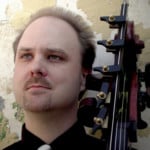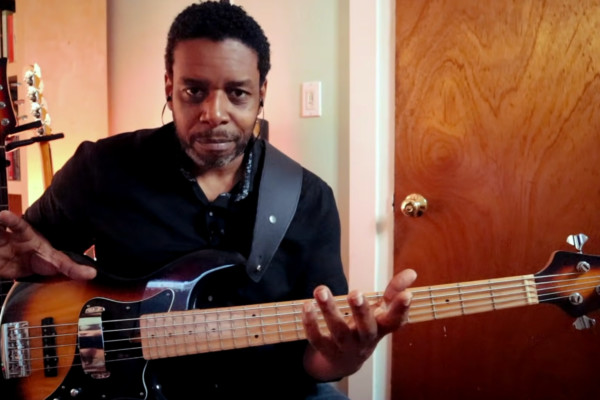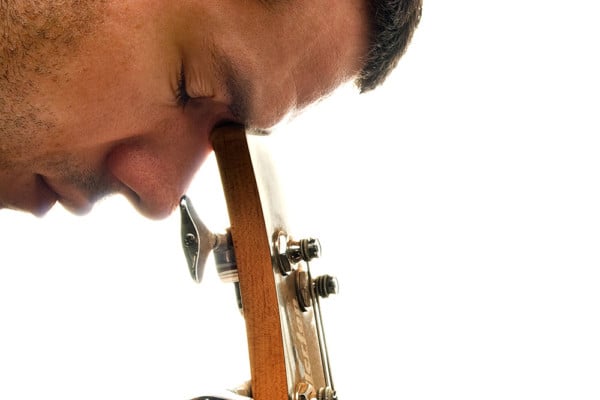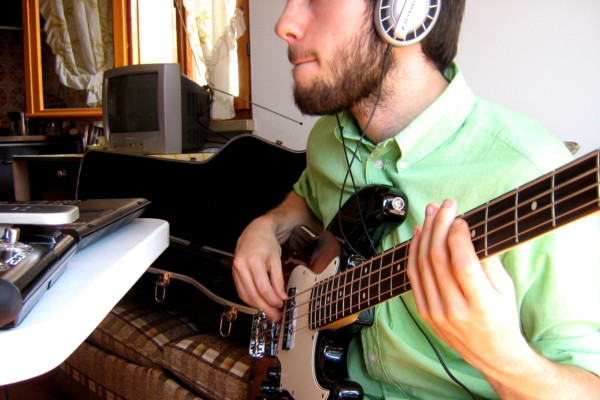Musical Goals and Self Evaluation
For those of us involved in formal education, the end of the year is a time for evaluation in all our classes, e.g. final exams, papers, presentations etc. When it comes to instrumental study, most students play what is known as a “jury.” This is performance by the student for panel of faculty. The charge of these faculty members is to evaluate the student’s performance.
For some students, this may seem daunting. In fact, however, it is a great opportunity to get comments, impressions and suggestions for further improvement by experienced and educated musicians who are interested in your success. Your success is their job. The faculty panel is there to help.
Evaluations and comments provide guidance, and can assist the student in moving toward their musical goals. As helpful as these comments are, however, self-evaluation is crucial to improvement.
In fact, for those not actively involved in bass study at an institutional level, self-evaluation is critical. It’s usually all we really have. Because of this, I take stock of my progress at the end of the year. I ask myself: What was my intent when I began the year, and how did it turn out at the end of the year?
One of the areas I self-evaluate on the bass is Technical Advancement. To encourage you to self-evaluate, I am listing below two examples of how I evaluated myself in this area in past years, and how that turned out.
A Negative Example
January
One year I decided to learn a series of virtuoso violin pieces. I began the year gung-ho and excited. I had the music purchased and was ready to go!
December
At the end of the year I couldn’t play any of the pieces, not a single one. Looking back on my tactics I saw that I worked on a few of the pieces at the beginning of the year and even played one in public. However, after that performance I stopped playing that piece in my practice sessions and never embarked on learning any of the others. By the end of the year, none of the proposed pieces, even the one I learned early in the year, were performance ready. Clearly I had not met this goal.
Looking back, my plan had been, at best haphazard. I began full of energy, but lost sight of my goal halfway through they year. I asked myself: Why? Had the goal been too ambitious? Had I been discouraged at some point in the process? Had I simply been lax in my practice sessions? Had I allowed other events, or other music, to distract me from these pieces? Had I really wanted play them in the first place? Each of these questions required answers only I could give.
What I ultimately determined was that I did indeed want to learn these pieces, but I had allowed myself to get distracted by events in daily life. I also viewed my public performance of the first piece to be an “event” rather than a point in a journey. I celebrated, but didn’t follow through. As a result, I stopped working on the piece and never learned a new one. In the end, I had simply not put in the time necessary. If I were to achieve this goal in the future, that would have to change.
A Positive Example
January
One year, many years ago, I began the year with a great deal of physical discomfort and pain when playing. I decided that my goal would be to decrease my physical problems and make them manageable, as they were quite severe and were affected every aspect of my music making.
December
I then evaluated where I was in this area. Were my physical problems as prominent as they were in January? Where they worse? Were they better? Was the problem abolished completely?
As it turned out, at the end of the year, I was able to play regularly with out serious pain, which allowed me to perform more easily and practice more regularly. I hadn’t completely obliterated physical issues at this point, but the problems were greatly reduced. My goal had been to reduce physical discomfort, and I did this.
I looked back on my goal (see above) and evaluated what I had done, or didn’t do, to achieve it. As it turns out, that year I had undertaken a study of body mechanics, muscle and bone fitness, as well as studying bass, cello and violin pedagogy. I also planned out my practice sessions more intelligently.
Looking back on what I had done I could see that my studies had been successful in moving me forward in this area. Looking at things in this way also allowed me to see the progress I had made, rather than being discouraged by the fact that I still had physical issues which were causing me some concern. I could see I was on the right track and that continued study of the same subjects would likely be beneficial. In short, my efforts were paying off, and so I continued them.
Even a simple goal can be evaluated in this way. Perhaps you want to be able play all major and minor scales in 3 octaves without error. Evaluate it by asking and answering a few questions:
| What was my desired goal? | 3 octave major and minor scales, no errors |
| Where was I last year? | I could play 1 octave major scales only |
| Did I achieve my goal? | Yes |
| Why or why not? | Scales 30 minutes a day, without fail |
| How can I improve my approach? | Seems to be going well! Continue the same regimen |
I encourage each of you to self-evaluate your musical goals as the year draws to a close. Check your practice journals, recordings, old jury sheets, etc., to remind you of where you started, and what you wanted to achieve, and compare that to where you are. Then see what you did, or didn’t do, to achieve progress.
Dr. Donovan Stokes is on the faculty of Shenandoah University-Conservatory. Visit him online at www.donovanstokes.com and check out the Bass Coalition at www.basscoalition.com.




Great idea regarding the evaluation! This year was the first year that I started using a practice journal and writing down everything I worked on, making it extremely easy to track progress. Some of the goals that I set for myself for this year I probably won’t be able to reach, mostly because I was too lofty. I did however improve considerably and have become a much better musician in the process. I totally understand about events in daily life. To me, it comes down to how much I want to improve. Is a night out with friends worth not practicing that day? What if I haven’t seen those friends in years? Practicing diligently has given me a new look at my own priorities, helping me become much more focused in life as a whole. Just remember, not enough time is NOT a valid excuse!
I’ve never utilized a practice log or journal, but I can see that it would probably help my playing exponentially if I did. Definitely considering doing that in the future.